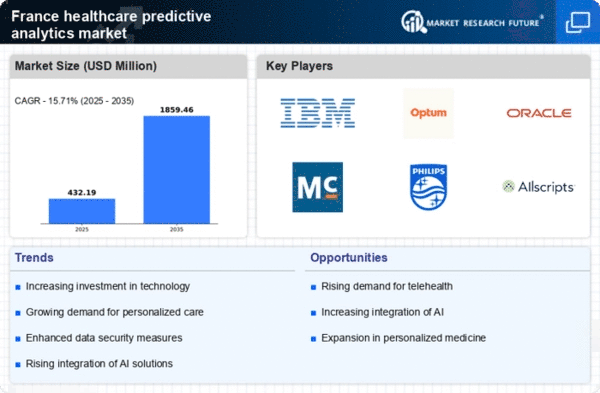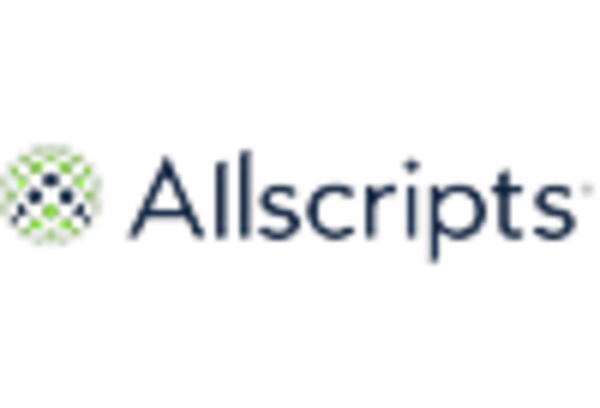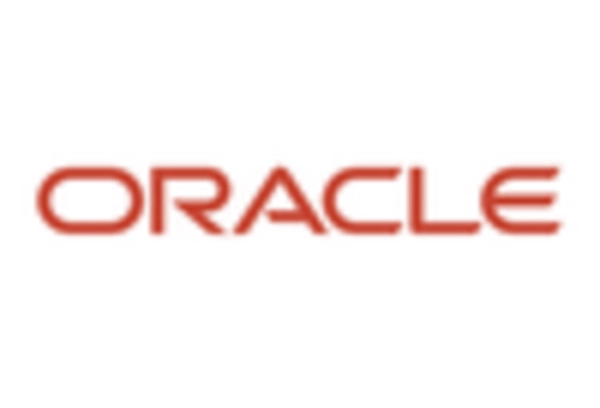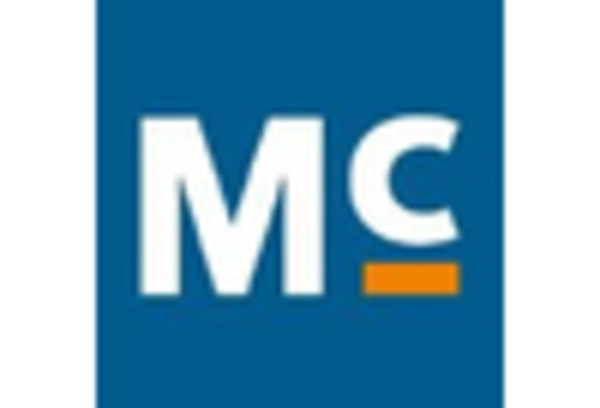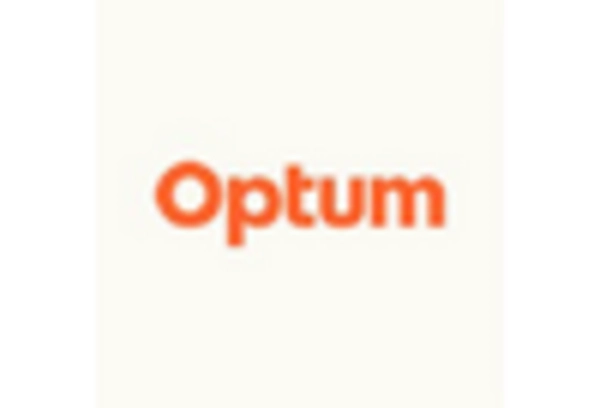Emergence of Value-Based Care Models
The shift towards value-based care models is a significant driver for the healthcare predictive analytics market. In France, healthcare reforms are increasingly focusing on outcomes rather than services rendered, incentivizing providers to deliver high-quality care. Predictive analytics can support this transition by providing insights into patient populations, treatment effectiveness, and cost management. By utilizing predictive models, healthcare organizations can identify high-risk patients and implement targeted interventions, ultimately improving patient outcomes while controlling costs. This alignment with value-based care principles is likely to enhance the adoption of predictive analytics solutions, as providers seek to demonstrate the value of their services in a competitive healthcare landscape. The emergence of these models is expected to propel the growth of the healthcare predictive-analytics market in France.
Rising Demand for Predictive Insights
The increasing demand for predictive insights in healthcare is a primary driver for the healthcare predictive analytics market. Healthcare providers in France are increasingly seeking to leverage data analytics to enhance patient outcomes and operational efficiency. This trend is evidenced by a projected growth rate of approximately 25% in the adoption of predictive analytics tools among healthcare organizations. By utilizing predictive models, healthcare professionals can anticipate patient needs, optimize resource allocation, and reduce costs. The integration of these insights into clinical workflows is expected to transform decision-making processes, thereby improving the overall quality of care. As the healthcare landscape evolves, the emphasis on data-driven strategies will likely propel the growth of the healthcare predictive-analytics market in France.
Increased Focus on Preventive Healthcare
The growing emphasis on preventive healthcare is a notable driver for the healthcare predictive analytics market. In France, healthcare policies are increasingly prioritizing preventive measures to reduce the burden of chronic diseases. This shift is reflected in the allocation of approximately €2 billion towards preventive health initiatives in recent years. Predictive analytics plays a vital role in identifying at-risk populations and enabling early interventions, which can lead to better health outcomes and reduced healthcare costs. By leveraging predictive models, healthcare providers can tailor preventive strategies to individual patients, thereby enhancing the effectiveness of health interventions. This focus on prevention is likely to stimulate the demand for predictive analytics solutions, as healthcare organizations seek to implement data-driven approaches to improve population health.
Advancements in Data Collection Technologies
Technological advancements in data collection methods significantly influence the healthcare predictive analytics market. The proliferation of electronic health records (EHRs), wearable devices, and mobile health applications has facilitated the accumulation of vast amounts of health data. In France, the number of connected health devices is anticipated to reach over 50 million by 2026, providing a rich source of data for predictive analytics. These innovations enable healthcare providers to gather real-time data, which can be analyzed to identify trends and predict patient outcomes. Consequently, the ability to harness this data effectively is becoming crucial for healthcare organizations aiming to improve patient care and operational efficiency. The ongoing evolution of data collection technologies is expected to drive the demand for predictive analytics solutions in the healthcare sector.
Growing Investment in Healthcare IT Infrastructure
Investment in healthcare IT infrastructure is a critical driver for the healthcare predictive analytics market. In France, the government has committed to enhancing digital health infrastructure, with an estimated investment of €1.5 billion over the next five years. This funding aims to improve data interoperability and facilitate the integration of advanced analytics tools within healthcare systems. As healthcare organizations upgrade their IT capabilities, the demand for predictive analytics solutions is expected to rise. Enhanced infrastructure will enable seamless data sharing and collaboration among healthcare providers, fostering a more integrated approach to patient care. The ongoing investment in healthcare IT is likely to create a conducive environment for the growth of the healthcare predictive-analytics market, as organizations seek to leverage data for improved decision-making.


